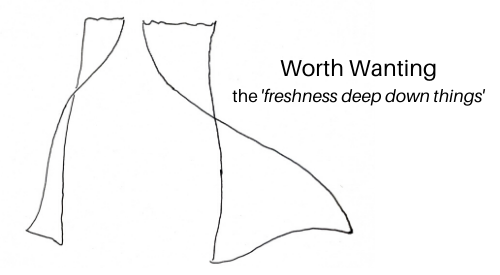
One of the reasons we despise play is because it is cost and risk free while the mundane world is both costly and dangerous. The world-building of play is seen as costing time that could or should be spent actual working in the given world. And the make-believe risks mock the frequent-enough real consequences of similar behaviors in the non-play world. In play, palaces are conjured up without effort out of thin air. In play, we die many times, but grown-ups are only too aware of the fact “we only live once.” In fact, we might say that the non-play world is forced to cover play’s costs and risks, and often resents it.
We can think of play not just as an attitude or a framing of our actions, but as an open space within the mundane world, fragile, often intruded upon, but distinct, consciously so, from its workaday, facts-are-facts, context. Nothing is more irksome for those engaged in play than to be summoned out of that special play space into the realm of urgencies and drudgeries.
Games are the homage that play pays the world of work. At the same time, the experience of liberation and delight is the homage that play pays to the transcendent world.
The correlate of play in the transcendent world is the encounter, a kind of engagement with an other also characterized by freedom and joy but also by common cause with the livingness of that other.
Each participant in an encounter pays respect to the mundane world by taking into consideration its own mundane circumstances and constraints and those of the other. The expansive sense of beyondness and the glamour of interestingness we here in the mundane experience in encounters indicate the presence of freshness from the transcendent.
Encountering does have ‘real world’ costs and risks, but each encounter pays its own way and ensures its participants. Opportunity costs? Each encounter is in and of itself a unique unit of lasting inherent value. No other encounter can be the same or have more or less value. Risks? Each encounter has a fresh future forever, and so do all who participate in it. Or rather it’s freshness, free and frolicsome, that covers the costs of encounter. It is the active, potent presence of freshness itself which gives lasting value to each of our encounters.
So based on the analogue between play and encounter, we can visualize the two worlds I’m talking about here, the mundane and the transcendent, in a single figure similar to the classic Taoist yin-yang symbol: a circle divided into black and white halves by a sinuous line down the middle, and a circle of its opposite color in each half.
One half, let’s say the dark because ever-shadowed by the fact of mortality, is the mundane world, but in it, bubbling up (and bursting), are occasions of play, lighter than their surroundings by virtue of their openness to the transcendent. Within the other half, the transcendent, are encounters, darkened in hue perhaps by the constraints on the participants on mundane circumstances and pressures, popping up continually.
This symbol is essentially flawed in at least one important way: the two halves are not opposite and equal. The mundane world is, in fact, bounded whereas the transcendent, by contrast, is boundless.
A suggestion for improvement of the symbol might be to depict the mundane world as embedded in the transcendent, and play embedded in the mundane. This could lead, however, to a fundamental misapprehension: the domination of the transcendent.
In fact, the transcendent world doesn’t intrude at all on the mundane, and interacts with it only through voluntary encounters. These encounters can include those occasions of play when common cause is made with the livingness of some other, when even the mundane world itself is addressed as ‘other’, and they can occur anytime, anywhere. However, apart from encounters and invitations to encounter, the mundane world is autonomous.
The mundane world is not to be despised, nor its exigencies deplored. It is where we live and strive. It is the arena of our victories and defeats. Our ambitions for profit, power and perpetuation play out in the mundane. Our material civilization is built and operates there. In the mundane, we struggle for justice, peace and for provision for all. Achievements in the mundane deserve celebration. Perishability and mortality are a fundamental and inescapable feature of the mundane, and the pathos of this is not to be mocked or discounted.
At the same time, the transcendent is always as close to us as our next encounter, and the transcendent goes nowhere but forward forever.
